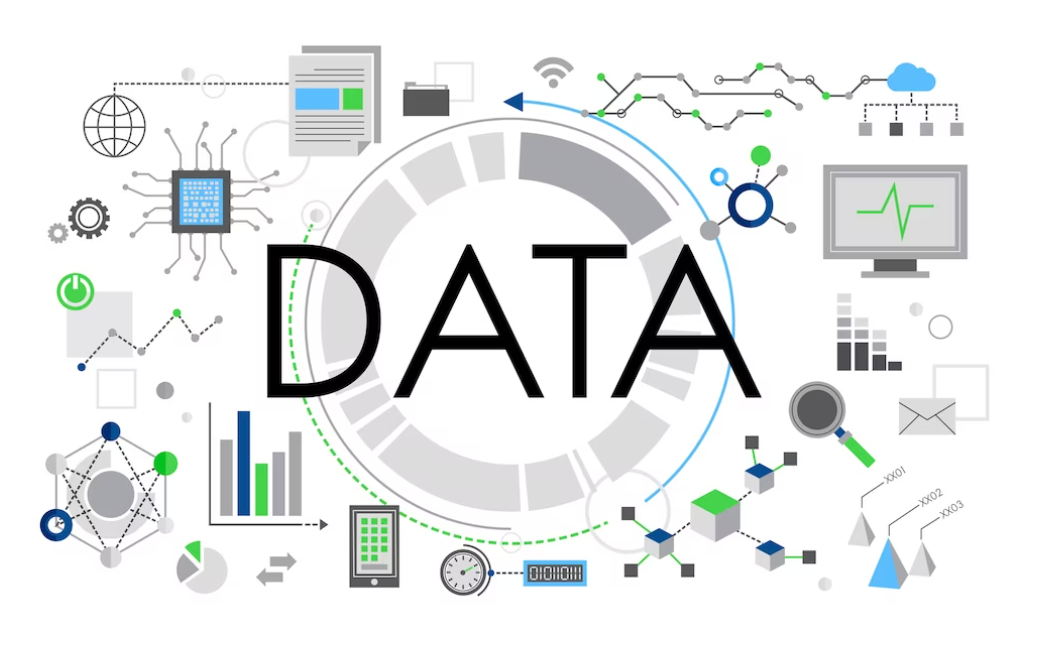CBD and Hemp Products in North Carolina: Legal Status and Regulations
Understand the legal status of hemp derived products in North Carolina
The legal landscape surround hemp and marijuana derive products can be confusing, peculiarly as state laws oftentimes differ from federal regulations. North Carolina residents oft have questions about the legality of products like CBD, THCA, and delta 8 THC. This article provides a comprehensive overview of where these products stand lawfully in the tar heel state.
Is CBD legal in North Carolina?
CBD (cannabidiol )is mostly legal in noNorth Carolinabut with specific conditions and restrictions. The legality stem from both federal and state legislation that has evevolvedver recent years.
Federal framework for CBD legality
The 2018 farm bill at the federal level remove hemp and cannabis derive products contain less than 0.3 % delta 9 THC from the controlled substances act. This creates the foundation for legalCBDd products nationally, include inNorth Carolinaa.
North Carolina’s CBD laws
North Carolina has aligned with federal guidelines through its own legislation. The state define legal hemp products as those derive from the cannabis sativa plant contain no more than 0.3 % delta THChc by dry weight. ThiincludesCBDcbd products that meet this threshold.
Key points about CBD legality in North Carolina include:
- Cannabis derive CBD products with less than 0.3 % delta 9 THC are legal
- No prescription is required to purchase cannabis deriveCBDd
- CBD can be sell in various forms include oils, tinctures, topical, edibles, and capsule
- CBD products must come from licensed growers and manufacturers
CBD products available in North Carolina
Consumers in North Carolina can lawfully purchase and possess various CBD products, include:
- CBD oil tinctures
- CBD capsules and pills
- CBD topical ((reams, balms, lotions ))
- CBD edibles and gummies
- CBD vape products
- CBD pet products
These products are wide available in specialty CBD shops, health food stores, some pharmacies, and online retailers.
Medical CBD exceptions
North Carolina does have a limited medical CBD program. The North Carolina epilepsy alternative treatment act allow patients with intractable epilepsy to use CBD oil with less than 0.9 % THC and astatine least 5 % CBD by weight. This represents a special exception to the standard 0.3 %THCc limit for qualifying patients.
Is THCA legal in North Carolina?
THCA (ttetrahydrocannabinolacid ) )ist in a legal gray area in nortNorth Carolinake its status moderately complicated.
What’s THCA?
THCA is the non-psychoactive precursor to delta 9 THC find in raw cannabis plants. When heat (through smoking, vaping, or cooking ) thTHCAonverts to delta 9 thTHChrough a process call dedecarbonizationIn its raw form, thTHCAoes not produce intoxicating effects.

Source: hyperwolf.com
THCA’s legal status
The legal status of THCA in North Carolina hinges on interpretation of exist hemp laws:
- North Carolina law doesn’t specifically mention THCA by name
- Products contain THCA technically comply with the letter of the law if they contain less than 0.3 % delta 9 THC
- Notwithstanding, since THCA converts to delta 9 THC when heat, law enforcement may consider its intent use
This creates a situation whereTHCAa products exist in a legal gray zone. Some retailers sellTHCAa flower and products inNorth Carolinaa, argue they’re compliant because they contain minimal delta 9THCc in their raw form. Nonetheless, consumers should be aware that law enforcement might view these products otherwise, peculiarly if there be evidence they’reintendedd to convertedert to delTHC9 thc.
Recent developments
The legal landscape for THCA continue to evolve. Some states have begun specifically address THCA in their hemp regulations, but North Carolina has not hitherto enacted specific legislation targeTHCAca. This mean that whilTHCAca products are presently available in somNorth Carolinana stores, their legal staturemainsin uncertain and subject to change as regulations develop.
Is delta 8 legal in North Carolina?
Delta 8 THC has gain popularity as an alternative to traditional marijuana products, but its legal status in North Carolina require careful examination.
What’s delta 8 THC?
Delta 8 THC (tetrahydrocannabinol )is a cannabinoid that occur course in cannabis plants, though typically in rattling small amounts. Near commercial delta 8 products are crcreatedy chemically convert cCBDextract from hemp into delta 8 tTHC It pproducespsychoactive effects similar to delta 9 THC (the main psychoactive component in marijuana ) though typically less potent.

Source: hyperwolf.com
Delta 8’s legal status in North Carolina
Presently, delta 8 THC remain legal in North Carolina through a loophole in state and federal hemp laws:
- The 2018 farm bill legalize cannabis and hemp derivatives contain less than 0.3 % delta 9 THC
- The law didn’t specifically restrict delta 8 THC
- North Carolina’s hemp laws align with federal definitions
- As a result, cannabis derive delta 8 products remain technically legal in the state
This mean consumers in North Carolina can lawfully purchase delta 8 THC products include:
- Delta 8 gummies and edibles
- Delta 8 vape cartridges
- Delta 8 tinctures and oils
- Delta 8 flower (hemp flower infuse with delta 8 )
Regulatory uncertainty
Despite its current legal status, consumers should be aware that delta 8 exist in a precarious position:
- Several states have specifically banned deltaTHCthc
- The DEA has issue statements suggest synthetic cannabinoids may not be protected under the farm bill
- North Carolina legislators could close this loophole in future sessions
This uncertainty mean the legal status of delta 8 in North Carolina could change. Consumers should stay informed about legislative developments.
Age restrictions and purchasing requirements
When purchase CBD, THCA, or delta 8 products in North Carolina, consumers should be aware of age restrictions and requirements:
Age requirements
- Most retailers require customers to be 21 + to purchase any cannabis derive products, specially those with potential psychoactive effects like delta 8
- Some CBD only products may be available to customers 18 +, though this varies by retailer
- Valid photo identification is typically required for purchase
Purchasing locations
These products can be found at various retailers acrossNorth Carolinaa:
- Dedicated CBD and hemp shops
- Vape stores
- Health food stores
- Some convenience stores and gas stations
- Online retailers that ship to North Carolina
The quality and testing standards can vary importantly between retailers. Consumers are advised to purchase from reputable businesses that provide third party lab testing results for their products.
Quality and safety considerations
The hemp product market remains mostly unregulated, make quality and safety concerns important forNorth Carolinaa consumers:
Product testing
When purchase CBD, THCA, or delta 8 products in North Carolina, consumers should look for:
- Third party lab testing results (certificates of analysis )
- Verification of cannabinoid content
- Test for contaminants like pesticides, heavy metals, and residual solvents
- Qr codes on packaging that link to test results
Manufacturing standards
Quality products typically come from manufacturers that follow good manufacturing practices (gGMP)and maintain transparency about their production methods. Reputable companies will provide information about:
- Hemp source (sooner us grow from licensed farmers )
- Extraction methods use
- Manufacture facilities and standards
- Full ingredient lists
Legal risks and considerations
Despite the legal status of these products, North Carolina consumers should be aware of certain risks:
Possession and travel
- Cannabis derive products may be confused with marijuana by law enforcement
- Carry documentation or certificates of analysis can help verify the legal status of products
- Travel across state lines with these products may be risky as laws vary by state
- Transportation through airports may result in confiscation disregarding of legality
Drug testing concerns
Consumers should be aware that legal hemp products can potentially impact drug testing:
- Full spectrum CBD products may contain trace amounts of THC that could accumulate in the body
- Delta 8 THC can trigger positive results on standard drug tests that screen for THC metabolites
- THCA products, specially if heated, may result iTHChc enter the system
This is specially important for individuals subject to workplace drug testing or those in sensitive occupations.
Pence legislation and future outlook
The legal landscape for hemp products in North Carolina continue to evolve:
Potential legislative changes
Several factors could influence future regulations:
- Federal regulatory agencies like the FDA continue to evaluate cannabis derive products
- State legislators may introduce bills to clarify or restrict certain hemp derivatives
- Court cases in North Carolina and other states may set precedents for enforcement
Industry self-regulation
As the market matures, industry organizations are work to establish standards:
- Trade associations promote best practices and quality standards
- Voluntary certification programs for manufacturers and retailers
- Increase transparency in labeling and testing
Conclusion
The legal status of cannabis derive products in North Carolina can be summarizedas followsw:
- CBD products contain less than 0.3 % delta 9 THC are legal under both federal and state law
- THCA exist in a legal gray area, with products technically legal but potentially subject to scrutiny
- Delta 8 THC remain legal through a loophole in hemp legislation, though this could change
North Carolina consumers interested in these products should stay informed about evolve regulations, purchase from reputable sources that provide testing information, and consider the potential risks alongside the benefits. The legal landscape continues to develop as legislators, regulators, and courts address the complexities of cannabis derive cannabinoids.
For the near current information, consumers may want to consult with legal professionals specialize in cannabis law or monitor updates from state regulatory agencies responsible for hemp oversight in North Carolina.



